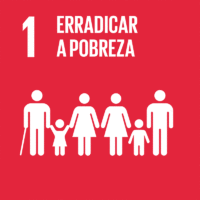Ciência_Iscte
Publicações
Descrição Detalhada da Publicação
Toward a sustainable supply chain for social credit: Learning by experience using single-valued neutrosophic sets and fuzzy cognitive maps
Título Revista
Annals of Operations Research
Ano (publicação definitiva)
2025
Língua
Inglês
País
Reino Unido
Mais Informação
Web of Science®
Scopus
Google Scholar
Esta publicação não está indexada no Overton
Abstract/Resumo
Social credit’s goal of fighting poverty and social inequality has meant that this concept has attracted increasing interest, particularly after Muhammad Yunus was awarded the 2006 Nobel Peace Prize. However, studies that have analyzed the supply chain and socio-economic impacts of this type of micro-credit are still extremely rare. Social credit is an issue that needs to be taken seriously because its objectives differ from those of other types of credit, that is, its main goals go beyond profit to embrace additional social concerns. Adopting a process-oriented stance that used single-valued neutrosophic sets and fuzzy cognitive maps, this study sought to develop a cognitive structure that facilitates a deeper understanding of social credit’s supply chain. Group meetings were held with a panel of professional credit analysts. The resulting framework shows that the socio-technical approach applied provides value for those analyzing the cause-and-effect relationships between the supply chain components of social credit. The results thus contribute to fulfilling social credit’s goals of promoting sustainability and improving human lives. The advantages, managerial implications, and limitations of this research are also discussed.
Agradecimentos/Acknowledgements
--
Palavras-chave
Social credit,Sustainable supply chain (SSC),Fuzzy cognitive mapping,Single-valued neutrosophic sets (SVNSs)
Classificação Fields of Science and Technology
- Economia e Gestão - Ciências Sociais
Registos de financiamentos
| Referência de financiamento | Entidade Financiadora |
|---|---|
| UID/GES/00315/2013 | Fundação para a Ciência e a Tecnologia |
Contribuições para os Objetivos do Desenvolvimento Sustentável das Nações Unidas
Com o objetivo de aumentar a investigação direcionada para o cumprimento dos Objetivos do Desenvolvimento Sustentável para 2030 das Nações Unidas, é disponibilizada no Ciência_Iscte a possibilidade de associação, quando aplicável, dos artigos científicos aos Objetivos do Desenvolvimento Sustentável. Estes são os Objetivos do Desenvolvimento Sustentável identificados pelo(s) autor(es) para esta publicação. Para uma informação detalhada dos Objetivos do Desenvolvimento Sustentável, clique aqui.

 English
English




